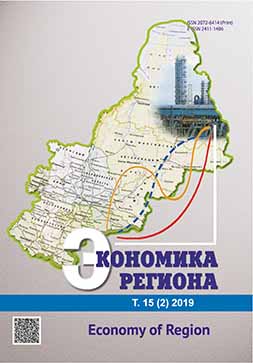НОВОЕ НЕРАВЕНСТВО В ДОХОДАХ ВЫПУСКНИКОВ ВУЗОВ:
РЕГИОНАЛЬНЫЙ АСПЕКТ
New Inequality in University Graduates’ Income: Regional Aspect
Author(s): Viktor Anatolyevich Koksharov, Gavriil Aleksandrovich Agarkov, Anastasia Dmitrievna SushchenkoSubject(s): Labor relations, Higher Education , Social differentiation, Family and social welfare
Published by: Институт экономики Уральского отделения Российской академии наук
Keywords: income inequality; labor market; employment; graduates; young professionals; professional trajectories; educational trajectories; financial achievement; poverty; higher education; family income;
Summary/Abstract: Income inequality is an important indicator of the modern Russian economy’s development. Economists and sociologists actively discuss the issues of reducing income differentiation and poverty on the global arena within the framework of approaches studying the so-called “new inequality’. At the same time, income inequality leads to new forms of inequality in household incomes. The article aims to assess the forms in which one generation’s financial success is reproduced in subsequent generations.Moreover, we examine to which extent a university degree provides social mobility. We analyzed the data on income inequality in Russia for the period from 1980 to 2015, presented in the World Database on Wealth and Income (WID), supplemented by the results of graduates’ monitoring we conducted. To process the data, we used classification and expert assessment methods.The analysis of the data on income inequality has revealed the stagnation in middle- and lower-class incomes due to increased incomes of the 10 % richest population. The study’s key conclusion is that investments (both state and private costs from family income) in obtaining a university degree by families with moderate financial success are effective and justified in the long term. The applicants from middle-income families require support: in such families, 49 % of university graduates already have a similar level of income at the start of their careers, and another 16 % are financially successful. This group’s graduates are motivated to work in their professional sphere after graduation. The results are applicable for optimizing the admission process in leading universities, taking into account the approaches to income inequality. Such method can contribute to enhancing human potential in the Ural region and to ensuring effective investments in the development of higher education by state authorities.
Journal: Экономика региона
- Issue Year: 15/2019
- Issue No: 2
- Page Range: 337-349
- Page Count: 13
- Language: Russian

